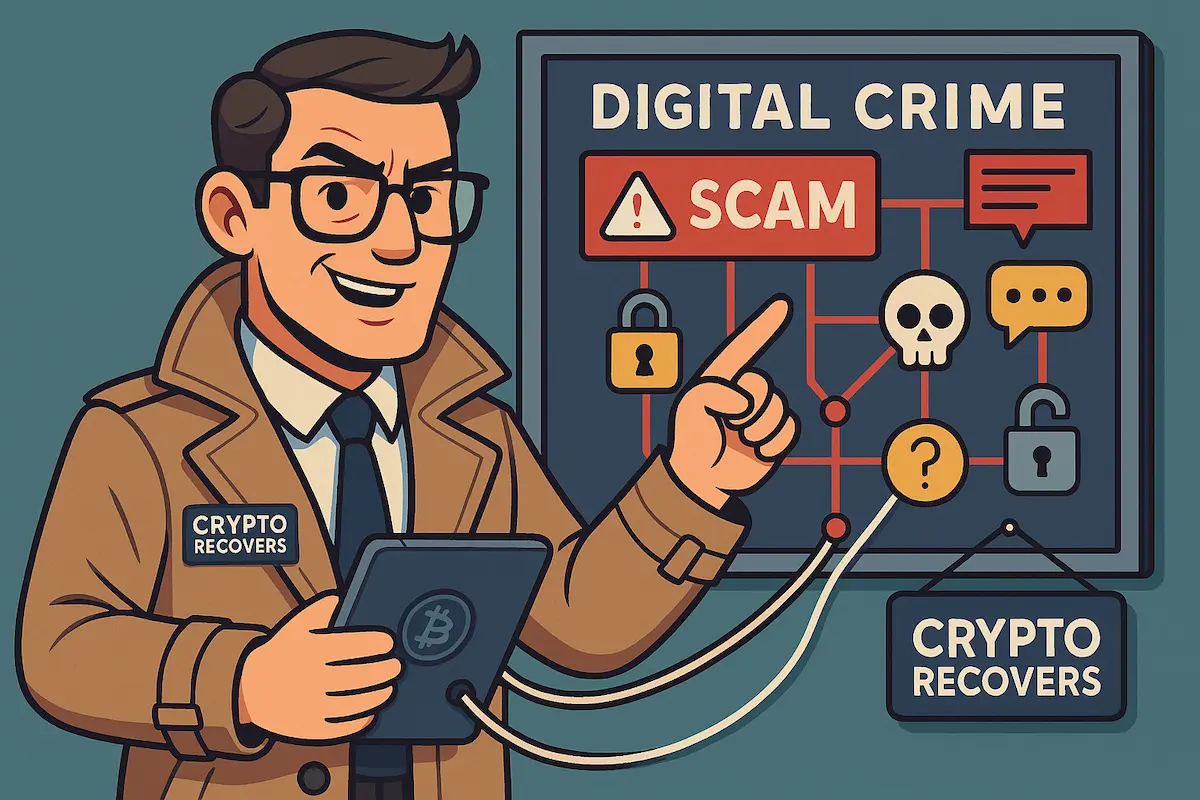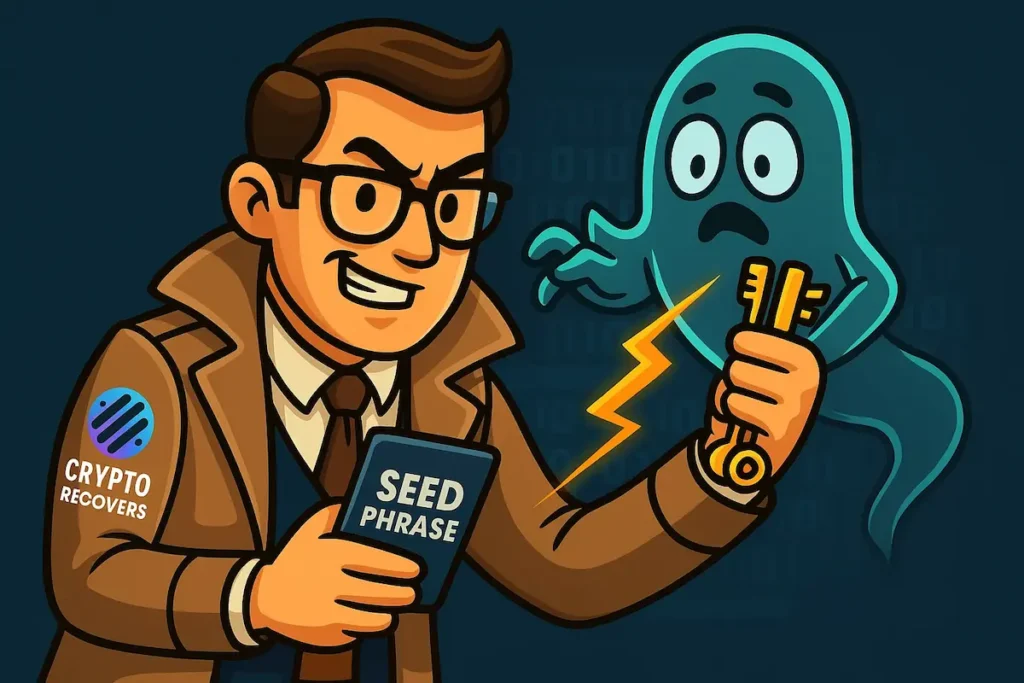With the rise in popularity of cryptocurrencies such as Bitcoin, the risk of falling victim to scams has also increased. But how can you identify these scams and protect your digital assets? In this article, we will explore the key warning signs of crypto scams and provide you with the knowledge to stay safe in the crypto world.
Key Takeaways of crypto scams
- Be cautious of attempts to gain your private information, such as security codes.
- Watch out for poorly written white papers, excessive marketing, and get-rich-quick claims.
- Contact federal regulatory agencies or your crypto exchange if you suspect you’ve been a victim of a crypto scam.
- Cryptocurrency scams can be categorized into types like social engineering fraud, romance scams, imposter and giveaway scams, phishing, blackmail and extortion schemes, fraud involving investment or business opportunities, rug pulls, and cloud mining.
- Exercise caution, thoroughly research investment opportunities, and report any suspicious activity to regulatory agencies or crypto exchanges.
Types of Crypto Scams
When it comes to cryptocurrency scams, they can be broadly categorized into two main types. Each type targets individuals in different ways, aiming to gain unauthorized access to their digital wallets or trick them into directly transferring cryptocurrency. It’s crucial to be aware of these types of scams and their tactics to protect your digital assets.
1. Attempted Access Crypto Scams
Scammers employing this type of scam try to gain access to a target’s digital wallet or authentication credentials. They may use various tactics, such as:
- Social engineering: Psychological manipulation to deceive individuals into revealing private information, like security codes or access to physical hardware.
- Phishing: Creating fake websites or sending deceptive emails that prompt users to input their private keys or other sensitive information, which scammers then use to compromise their wallets.
2. Direct Transfer Crypto Scams
In this type of scam, the scammers directly transfer cryptocurrency from victims to themselves, often through impersonation or fraudulent investment opportunities. Here are some examples:
- Giveaways: Scammers pretend to be influential figures or companies offering cryptocurrency giveaways, luring victims into sending their own cryptocurrency to participate.
- Romance scams: Scammers establish relationships online and then introduce cryptocurrency opportunities, convincing victims to transfer coins or share account credentials under the guise of love and trust.
- Extortion: Scammers leverage compromising information to blackmail victims into sending cryptocurrency, often claiming to have evidence from adult websites or other personal activities.
- Fake companies and alerts: Scammers create fake companies or send fake alerts posing as legitimate organizations to trick victims into sending cryptocurrency.
- Rug pulls: Scammers initiate projects and raise funds, only to abandon them and disappear with investors’ money.
- Fake mining apps or networks: Scammers offer mining services that promise high returns but ultimately deceive users into sending upfront capital without providing the expected rewards.
It’s important to stay vigilant and be cautious when engaging in cryptocurrency transactions or interacting with any investment opportunities. Performing due diligence and verifying the authenticity of any offers or requests can go a long way in avoiding falling victim to these types of scams.
| Scam Type | Examples |
|---|---|
| Attempted Access Scams | Social engineering, phishing |
| Direct Transfer Scams | Giveaways, romance scams, extortion, fake companies and alerts, rug pulls, fake mining apps or networks |
By familiarizing yourself with the various types of cryptocurrency scams and staying informed about their tactics, you can better protect yourself against potential threats.

Social Engineering Fraud
Social engineering fraud involves the deceptive and manipulative tactics used by scammers to obtain critical information from unsuspecting individuals. These fraudsters often pose as trusted entities, such as government agencies, businesses, tech support, or even friends, to gain victims’ trust and exploit their vulnerabilities. The psychological manipulation employed by these scammers aims to deceive individuals into revealing their private keys or sending cryptocurrency to their wallets, ultimately leading to financial loss.
To protect yourself from social engineering fraud, it is crucial to exercise caution and verify the authenticity of any requests for cryptocurrency. Always be skeptical of unsolicited communications and verify the identity of the individual or organization contacting you. Remember that trusted entities will never ask you to share your private keys or demand cryptocurrency through unsolicited channels.
“Social engineering fraud capitalizes on psychological manipulation, exploiting victims’ trust and emotions. It is imperative to stay vigilant and raise awareness about this type of scam to protect individuals from financial harm.”
Recognizing the warning signs of social engineering fraud can help you avoid falling victim to these scams:
- Be cautious of unsolicited communications: Scrutinize requests for personal information or cryptocurrency demands that come out of the blue.
- Verify the identity of the sender: Independently confirm the legitimacy of the entity contacting you. Use official contact information obtained through reliable sources.
- Exercise skepticism: Question requests for private keys or cryptocurrency, especially if they involve urgent or high-pressure situations.
- Stay informed: Stay updated on the latest scam techniques and educate yourself about social engineering fraud to recognize any red flags.
By remaining vigilant and skeptical, you can protect yourself from social engineering fraud and safeguard your digital assets.

Fraud Promising Romance
Scammers frequently use dating websites to establish relationships with unsuspecting individuals. Once trust is established, scammers often introduce cryptocurrency opportunities and convince victims to transfer coins or account-authentication credentials. Romance scams rank highly among money scams, with cryptocurrency being a preferred method of payment. It is important to be cautious when engaging in online relationships and to verify the authenticity of any cryptocurrency opportunities that may arise.
When it comes to romance scams, scammers target vulnerable individuals who are seeking genuine connections through dating websites. They create fake profiles, often using stolen photos and identities, to gain the trust and affection of their victims. Once a bond is formed, scammers gradually introduce the topic of cryptocurrency.
They may claim to have discovered lucrative investment opportunities or promise high returns on cryptocurrency investments. To make their scams more convincing, scammers may pose as successful investors or cryptocurrency experts, using persuasive tactics to lure victims into transferring their coins or account credentials.
Victims of romance scams may be persuaded to send their hard-earned cryptocurrency to the scammer’s wallet, with promises of exponential growth or exclusive investment opportunities. In some cases, scammers may request victims’ personal identification information or access to their crypto wallets, under the guise of account verification or security measures.
This type of fraud often preys on individuals who are new to the concept of cryptocurrency or are emotionally vulnerable. The promise of love and financial gain can cloud judgment and make it easier for scammers to exploit their victims.
To avoid falling victim to romance scams and cryptocurrency fraud:
- Be cautious of individuals who quickly introduce cryptocurrency into the conversation, especially if they pressure you to invest or transfer funds.
- Do thorough research on your potential partner, including verifying their identity and cross-checking their claims and promises.
- Consult with trusted friends or family members before making any financial decisions related to cryptocurrency.
- Never share your private keys, account credentials, or personal identification information with anyone you meet online.
- Report suspicious profiles or activity on dating websites to the platform administrators.
- Stay informed about the latest fraud trends and warning signs of romance scams.
Remember, it is essential to prioritize your safety and financial well-being when engaging in online relationships or considering cryptocurrency investments. Be vigilant, stay informed, and trust your instincts.
| Warning Signs of Romance Scams | Tips to Protect Yourself |
|---|---|
| Inconsistent or generic profile information | Verify your partner’s identity and independently confirm their claims. |
| Quick professing of love or deep emotional connections | Take time to build trust and assess the authenticity of the relationship. |
| Requests for financial assistance or loans | Avoid sending money or sharing your financial details with someone you met online. |
| Reluctance to meet in person or video chat | Insist on face-to-face interactions to determine the legitimacy of the relationship. |
| Mismatched or stolen profile photos | Perform reverse image searches to identify stolen images or fake profiles. |
Case Study: The Glamorous Con
“I thought I had found love and financial security when I met Mark on a popular dating website. He was charming, successful, and claimed to be an experienced cryptocurrency trader. We developed a deep emotional connection, and he convinced me to invest my savings in a promising new cryptocurrency. Little did I know, Mark was a fraudster out to steal my money. I lost both my investment and my heart in that romance scam. It was a painful lesson learned.” – Emily, Romance Scam Victim
Imposter and Giveaway Crypto Scams
Scammers are known to exploit various tactics, and in the world of cryptocurrencies, imposter and giveaway scams are prevalent. These scams involve scammers pretending to be well-known individuals such as celebrities, businesspeople, or cryptocurrency influencers. By impersonating these figures, scammers aim to gain the trust of potential victims and lure them into fraudulent schemes.
Celebrity impersonation: In imposter scams, scammers use the personas of celebrities to create a sense of legitimacy. They may establish fake social media accounts or send unsolicited messages claiming to have insider knowledge or exclusive investment opportunities. By leveraging the fame and reputation of these figures, scammers seek to deceive individuals into believing that their offers are genuine.
Giving away cryptocurrency: Giveaway scams often play on the desire for free money or easy returns. Scammers posing as influencers or cryptocurrency exchanges promise to match or multiply the cryptocurrency sent to them. They create a sense of urgency by setting deadlines or limited availability, pressuring individuals to act quickly without thorough consideration.
It is crucial to exercise skepticism and verify the authenticity of any requests or offers made by these scammers. Here are some important steps to protect yourself from imposter and giveaway scams:
- Double-check the legitimacy of social media accounts: Verify the authenticity of accounts claiming to be owned by celebrities or influential individuals. Look for verified badges, high follower counts, and consistency in posting style and content.
- Be cautious of unsolicited messages: If you receive unsolicited messages promoting cryptocurrency giveaways or investment opportunities, be wary. Legitimate businesses and influencers usually do not reach out to individuals without prior contact or engagement.
- Do thorough research: Before sending cryptocurrency to anyone, conduct thorough research. Verify the legitimacy of individuals and organizations involved, investigate their past activities and reviews, and don’t be swayed by promises of guaranteed returns or excessive profit.
- Use trusted sources: When seeking investment advice or exploring cryptocurrency opportunities, rely on reputable sources such as well-established exchanges, financial advisors, or industry experts. Avoid relying solely on information provided by unknown individuals or unverified sources.
By remaining vigilant and following these precautions, you can protect yourself from falling victim to imposter and giveaway scams.

Phishing
Phishing scams pose a significant threat to cryptocurrency users, as scammers attempt to deceive individuals into divulging their crypto wallet private keys. These private keys serve as the gateway to accessing and managing their cryptocurrency holdings.
Scammers employ various tactics to execute phishing scams, such as creating fake websites that mimic legitimate platforms or sending emails with malicious links. These websites and email links direct unsuspecting victims to enter their private key information, which scammers then exploit for personal gain.
By acquiring private key information, scammers effectively steal victims’ cryptocurrency, resulting in substantial financial losses. As such, it is crucial for cryptocurrency users to exercise caution when accessing cryptocurrency-related websites and clicking on email links.
To prevent falling victim to phishing scams, it is recommended to verify the authenticity of the source before sharing any sensitive information. This can be done by independently navigating to the website rather than clicking on links from emails or using email headers to confirm the sender’s legitimacy.
Remember, reputable cryptocurrency platforms and services will never ask for private key information via email or on fraudulent websites. By remaining vigilant and employing caution, users can protect themselves from the threat of phishing scams and safeguard their cryptocurrency investments.

| Type of Phishing Scam | Characteristics |
|---|---|
| Email Phishing | Fake emails impersonating legitimate organizations, requesting private key information |
| Website Spoofing | Fraudulent websites designed to mimic legitimate crypto platforms, tricking users into revealing private keys |
| Clone Services | Scammers create clones of popular crypto wallets or exchanges, capturing private key credentials from unsuspecting users |
| Malware Attacks | Malicious software infects users’ devices, capturing private key information and transmitting it to scammers |
It is crucial to be aware of these different types of phishing scams and understand their characteristics to effectively protect your cryptocurrency assets.
Blackmail and Extortion Schemes
Blackmail scams and extortion schemes are prevalent tactics used by cybercriminals to exploit individuals and coerce them into providing private information or making cryptocurrency payments. These scams often target vulnerable individuals who may have engaged in adult websites or other activities they wish to keep private. The scammers claim to possess compromising information and threaten to expose it unless their demands are met.
Victims are typically coerced into sharing their private keys or making cryptocurrency payments to the scammers. This manipulation and extortion are criminal activities and should be reported to law enforcement agencies immediately.
“We have obtained sensitive information about your online activities and will expose it unless you comply with our demands. Share your private keys or send cryptocurrency to the following addresses to avoid public exposure.”
It is crucial to be aware of these blackmail scams and extortion schemes. Remember, scammers prey on fear and embarrassment, leveraging personal information to manipulate their victims. The best defense against these scams is to exercise caution while engaging online and be cautious about sharing personal information.
Remain vigilant, and if you receive any blackmail attempts or extortion demands, report them to law enforcement agencies and local authorities. Do not succumb to the pressure or make any payments without seeking professional advice.
Examples of Blackmail and Extortion Scams:
Scammers employ various techniques to carry out blackmail and extortion scams. Here are some common examples:
- Pretending to have evidence of adult website visits and demanding cryptocurrency payments to prevent exposure.
- Threatening to share compromising photos or videos unless a victim complies with the scammer’s demands.
- Impersonating law enforcement officials or government agencies and claiming the victim has violated the law, demanding cryptocurrency payments as a fine.
Protecting Yourself Against Blackmail and Extortion Schemes:
When it comes to dealing with blackmail and extortion scams, prevention and awareness are key. Here are some essential tips to protect yourself:
- Be cautious with your online activities and avoid engaging with suspicious or untrustworthy websites.
- Don’t share compromising information or personal details with unknown individuals or websites.
- Keep your private keys secure and never share them with anyone.
- Regularly update your computer’s security software and use strong, unique passwords for your online accounts.
- If you receive a blackmail or extortion message, do not panic or respond immediately. Instead, report it to law enforcement agencies and seek professional advice.
Remember, scammers thrive on fear and intimidation, but by staying informed and taking proactive measures, you can protect yourself and avoid falling victim to blackmail and extortion schemes.
| No. | Blackmail and Extortion Scam Protection Tips: |
|---|---|
| 1 | Be cautious with your online activities and avoid engaging with suspicious or untrustworthy websites. |
| 2 | Don’t share compromising information or personal details with unknown individuals or websites. |
| 3 | Keep your private keys secure and never share them with anyone. |
| 4 | Regularly update your computer’s security software and use strong, unique passwords for your online accounts. |
| 5 | If you receive a blackmail or extortion message, do not panic or respond immediately. Instead, report it to law enforcement agencies and seek professional advice. |

Fraud Involving Investment or Business Opportunities
Fraudulent investment or business scams often entice individuals with promises of guaranteed returns or misleading advertising. These scams can lead to financial disaster when unsuspecting individuals invest significant sums of money based on false guarantees. It’s crucial to exercise caution and conduct thorough research to avoid falling victim to investment scams.
Crypto-based investments, such as Initial Coin Offerings (ICOs) and Non-Fungible Tokens (NFTs), have become popular targets for scammers. They exploit the hype and excitement around these emerging technologies to deceive investors and manipulate the market. Misleading websites and deceptive marketing tactics are frequently used to lure in unsuspecting individuals.
Investment scams can have devastating consequences, causing individuals to lose their hard-earned money and suffer financial ruin. The promise of guaranteed returns might seem appealing, but it often serves as a red flag for fraudulent schemes. It’s essential to remember that legitimate investments come with inherent risks and no one can guarantee profits.
According to a report by the Federal Trade Commission (FTC) in 2020, impostor scams were the top category of reported fraud, with total reported losses exceeding $667 million.
Spotting Investment Scams
Recognizing the warning signs of investment scams is crucial in protecting yourself from financial fraud. Here are some key indicators that can help you identify potential scams:
- Unrealistic guarantees: Be wary of investments that promise high returns with little to no risk. If it sounds too good to be true, it probably is.
- Pressure to act quickly: Scammers often employ tactics that create a sense of urgency to prevent potential victims from thoroughly researching the opportunity.
- Lack of transparency: Legitimate investment opportunities provide detailed information about the company, its management team, and the associated risks. Beware of vague or evasive answers.
- Unsolicited offers: Be cautious of unsolicited investment opportunities received through cold calls, emails, or social media messages. Verify the legitimacy of the source before considering any investment.
- Unregistered sellers or companies: Ensure that the individuals or companies offering investments are registered with relevant regulatory authorities. Research their background and check for any disciplinary actions.
- Investment pressure from others: Be cautious if someone you know, such as a friend or family member, encourages you to invest in a specific opportunity. Scammers often rely on personal relationships to exploit trust.
Remember, the best defense against investment scams is knowledge. Do your due diligence, seek advice from trusted financial professionals, and never invest without fully understanding the risks involved.
Rug Pulls and Cloud Mining
When it comes to cryptocurrency scams, rug pulls and cloud mining scams are two prevalent forms that individuals should be wary of. Rug pulls occur when project members raise funds for a project and then vanish, leaving investors with lost funds. These scams often target contributors to cryptocurrency projects, who may find themselves with empty wallets and no recourse.
Cloud mining scams, on the other hand, involve platforms that promise mining rewards but fail to deliver after receiving upfront capital. While not all cloud mining platforms are scams, it is crucial to exercise due diligence and thoroughly research any cloud mining opportunities before investing your hard-earned money.
To protect yourself from rug pulls and cloud mining scams, it is essential to:
- Conduct thorough due diligence: Research the project or platform, check the background of the team members, and look for red flags or negative reviews.
- Verify legitimacy: Seek community feedback and testimonials from trusted sources to verify the credibility and authenticity of the project or platform.
- Question unrealistic promises: Be skeptical of platforms or projects that promise high returns with little effort. Remember, if it sounds too good to be true, it probably is.
- Stay informed: Keep up with the latest news and developments in the crypto space to stay ahead of potential scams and fraudulent activities.

By taking these precautions and exercising caution, you can minimize the risk of falling victim to rug pulls and cloud mining scams. Remember, always perform your due diligence and trust your instincts when it comes to investing in cryptocurrency projects or engaging in cloud mining activities.
Conclusion
Cryptocurrency scams come in various forms and can pose significant risks to individuals. It is crucial to be aware of the warning signs and take proactive measures to protect your digital assets. By staying vigilant and informed, you can avoid falling victim to crypto scams and safeguard your investments.
One of the key warning signs of crypto scams is the request for private information, such as security codes or access to your cryptocurrency wallets. Scammers often try to trick individuals into revealing their private keys, which can lead to theft of their digital assets. It is important to never share sensitive information and only rely on trusted entities when it comes to cryptocurrency transactions.
Promises of guaranteed returns and get-rich-quick claims should also raise red flags. Crypto scams often lure individuals with unrealistic profit projections and misleading advertising. It is essential to conduct thorough research and due diligence before investing in any cryptocurrency-related opportunities. Simply put, if it sounds too good to be true, it probably is.
Another warning sign to watch out for is excessive marketing. Crypto scams may bombard individuals with emails, messages, or ads, persuading them to invest in fraudulent schemes or fake companies. Be cautious of high-pressure tactics and seek information from reputable sources to verify the legitimacy of any investment or business opportunity.
In conclusion, protecting your digital assets from crypto scams requires knowledge, vigilance, and skepticism. Always stay informed about the latest warning signs, conduct thorough research, and verify the authenticity of any cryptocurrency-related communication. By taking these proactive steps, you can safeguard your investments and avoid falling prey to crypto scams.












